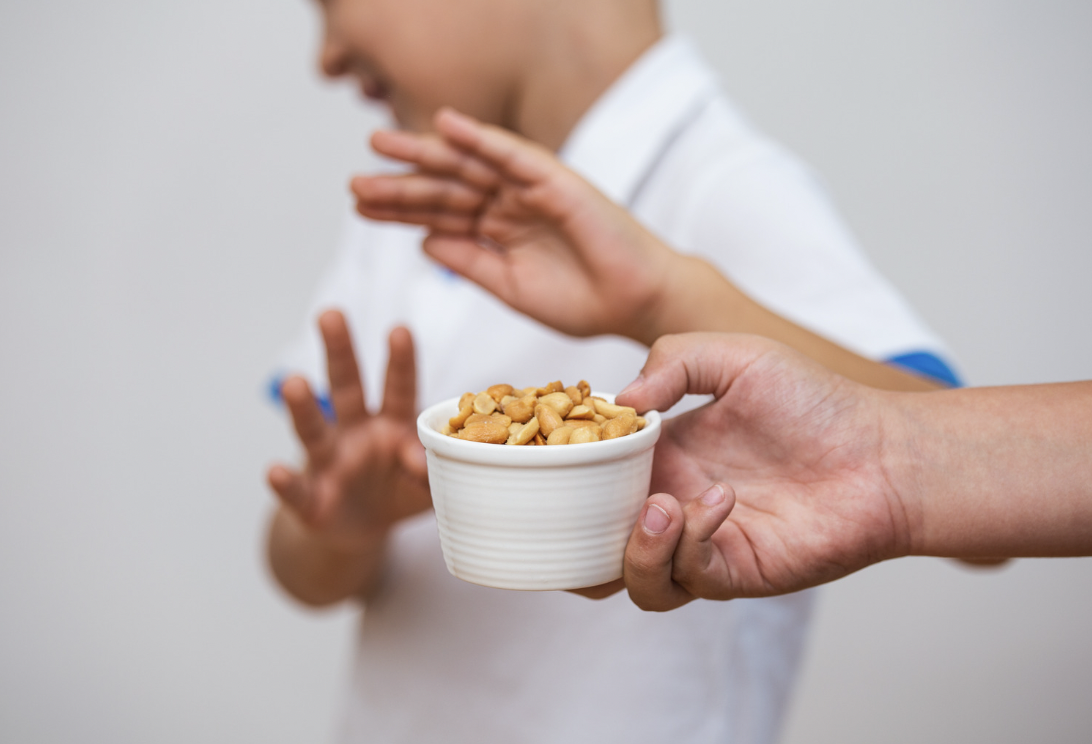
Food allergy occurs due to the sensitive immune system of your child, which reacts against the food they eat as they perceive it as a danger. Some allergies are short-term, and children can tolerate food at 3-4 years old.
The following foods are known as the most common cause of allergies and kids and should be carefully introduced when weaning starts.
- Peanuts
- Eggs
- Milk
- Fish
- Wheat
- Tree nuts
- Soy
Following are the common symptoms that may appear due to allergy
- Itching in the mouth
- Asthma
- Vomiting
- Breathing difficulties
- Diarrhea
- Pain in stomach
- Eczema
- Low blood pressure
- Swelling of mouth, lips, or tongue.
Food allergy management
There is no medication for food allergies. However, you need to avoid foods that cause allergies.
A food challenge is done in which a small amount of food is given to the child in a controlled manner until one serving is accomplished. This is done again after 3-6 months to see if that food still causes allergies in the child.
Avoid this test in a child with a higher risk of anaphylaxis (potentially life-threatening allergic reaction).
- It would help if you worked with the doctor until you did not diagnose your
child’s allergy triggers from foods.
- Once you know the allergic foods, avoid them and food similar to those in your child’s diet.
- If breastfeeding your child, do not eat the foods that cause allergy to your child as food allergens in small amount is passed by milk to your child, which causes the reaction.
- Supplements can be the alternatives to allergic foods for better health, but consult your doctor before giving them to your child.
- Epinephrine-containing emergency kit must be in your home as soon as your child has a severe attack.
Avoid food allergies
You can’t prevent the development of food allergies, but they can be detained in children by following these guidelines:
- First, breastfeed your child for six months at least.
- Until your child reaches six months or older, do not introduce solid food to them.
- In the first year of your child’s life, try to avoid cow’s milk, peanut, wheat, eggs, and fish.
- Only introduce one food at a time while weaning to check the allergies.
- If your child is dining out, take a food allergy card containing all the information about your child’s allergy to be used by the restaurant.
Parents need to be more careful when they buy food and must read labels to see if there is any allergen in that item to avoid it. There may be a chance of cross-contamination, so some companies use alerts and write on labels that it may contain peanuts, etc., if not in any product, so contact the company to ask for your child’s safety to ensure it.
Conclusion
Food allergy occurs when a child’s immune system reacts to food by considering it harmful. You cannot treat the allergy, but management can be done by avoiding the triggers and allergens of food with the help of a doctor. Food allergy can be avoided by following the guidelines. The child must use a food allergy card when dining with friends or family.



